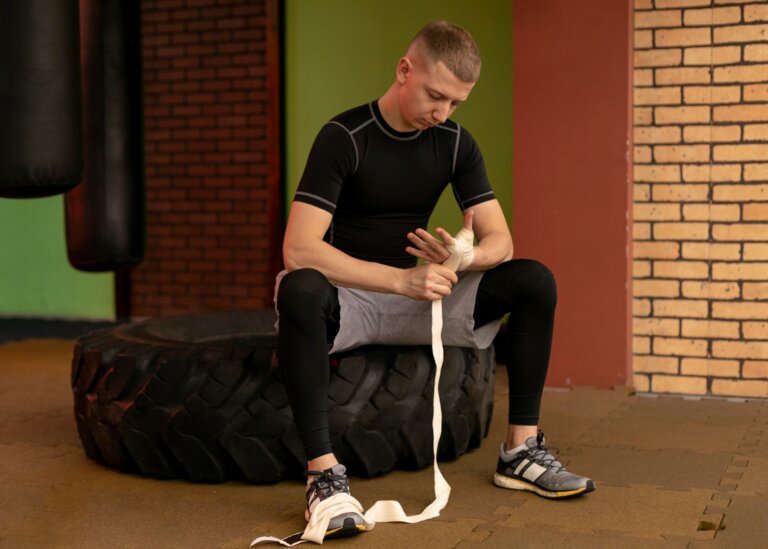For many, a New Year’s resolution is to get fit, and the gym is a fantastic way to achieve that goal. However, injuries can occur on gym premises, and it’s important to know your rights if you’re injured due to negligence. Every year, 17.9% of gym-goers experience injuries due to gym negligence, and a common question is, “Can I get compensation for my injuries?”
According to California Civil Code Section 1714:
“Everyone is responsible…for an injury occasioned to another by their want of ordinary care or skill in the management of their property or person.”
Although gyms often include waivers in their contracts, there are certain situations where they cannot avoid liability. While the possibility of compensation may seem slight, it’s vital to understand your legal rights.
Common Injuries You May Encounter
Ensuring gym patron safety is the duty of gym staff, but some gyms prioritize increasing membership over safety. Gym incidents have increased by 8.3% compared to previous years. Here are some common injuries you may encounter:
- Slip or Fall: Uneven flooring, wet surfaces, improper signage, or misplaced equipment can cause accidents.
- Equipment Issues: Faulty or poorly maintained machines pose serious risks. According to the U.S. Consumer Product Safety Commission, nearly 22,000 gym incidents occurred due to faulty treadmills alone.
- Lack of Supervision: Trainers failing to oversee group or individual sessions (e.g., Zumba, yoga, HIIT, or strength training) can lead to injuries.
- Others’ Fault: Injuries caused by other gym members can range from minor to severe.
Injuries the Gym May Be Responsible For:
- Issues with machines.
- Negligence by staff or trainers.
- Improper training instructions.
- Unsanitary conditions.
- Inadequate security.
- Slip and fall accidents.
Injuries the Gym May Not Be Responsible For:
- Muscle strains.
- Injuries caused by another person.
- Improper use of machines.
- Lifting weights beyond a reasonable limit.
What Is the Time Limit to File a Claim?
In California, you have three years from the date of the injury to file a compensation claim against the gym. For example, if you were injured due to faulty equipment but didn’t notice the injury until months later, you can still file a claim once the issue is diagnosed.
However, waiting too long can make it difficult to gather evidence. If you decide to file a claim after a year, consult a personal injury lawyer like SunsetWest Legal Group to help you collect the necessary evidence and build a strong case.
Important Note: In severe cases where the injured person is unable to initiate legal proceedings (e.g., due to mental incapacity or being a minor), a litigation friend can file the claim on their behalf. A litigation friend acts in the best interests of the injured person throughout the legal process.
How Long Does It Take to Settle a Case?
The duration of a case depends on its complexity and severity. If the defendant admits liability, the case can be settled quickly. However, if liability is disputed, it may take months or even years to resolve. In such cases, having an expert like SunsetWest Legal Group by your side can help you navigate the process and secure fair compensation.
Example: In one notable case, a plaintiff was awarded $14.4 million for injuries sustained while using a Flex Smith machine. The plaintiff suffered a spinal injury, resulting in quadriplegia, due to the manufacturer’s failure to provide proper warnings and instructions.
Evidence to Support Your Compensation Claim
To strengthen your claim, gather the following evidence:
- Photos and videos of the injury and accident scene.
- Surveillance footage from the gym (request a copy).
- A copy of the injury report filed with gym staff.
- Witness testimonies (collect contact details of anyone who saw the accident).
- Medical records, bills, transportation costs, lost earnings, and physiotherapy expenses.
Caution: If you file a false claim, the gym may counter-sue for harassment or defamation. Additionally, while gym waivers may seem restrictive, they do not always prevent you from seeking compensation for injuries caused by negligence. Consult a specialist to understand your rights.
Steps to Take After an Injury
- Seek Medical Attention:
Even if the injury seems minor, get checked by a doctor to rule out internal damage. - Document Everything:
Record details of the accident, take photos, collect witness information, and keep all medical records. - Consult an Attorney:
Explain the incident in detail to a personal injury lawyer. Their expertise will help you build a strong case and maximize your compensation.
Can I Sue the Manufacturer?
Yes, if your injury was caused by a defective machine, you can sue the manufacturer. This includes cases involving design flaws, manufacturing defects, or failure to provide adequate warnings. Under product liability laws and the Consumer Protection Act, manufacturers have a duty of care to ensure their products are safe for use.
To succeed, you must prove that the manufacturer’s negligence caused your injury. For detailed guidance, consult an attorney.
Conclusion
If you believe your gym is responsible for your injury, don’t hesitate to take action. Consulting a personal injury lawyer is a crucial step in securing the compensation you deserve.
SunsetWest Legal Group specializes in such cases and can help you navigate the legal process effectively.
FAQs:
Ans. Not all injuries qualify. If the injury resulted from your own negligence or irresponsible behaviour, you may not be eligible. However, injuries caused by faulty equipment, trainer negligence, wet floors, or other gym members may qualify. If you’re unsure, consult a personal injury attorney.
Ans. Waivers are often misleading. Signing a waiver does not necessarily forfeit your right to compensation if the gym’s negligence caused your injury. Seek legal advice to understand your options.
Ans. Yes, if your injury resulted from a trainer’s negligence, such as pushing you beyond reasonable limits, using unsafe methods, or failing to spot you during exercises, you can file a claim against them.
Ans. The amount varies based on the severity of the injury, medical expenses, lost wages, and other factors. An experienced attorney can provide a realistic estimate based on your case.

